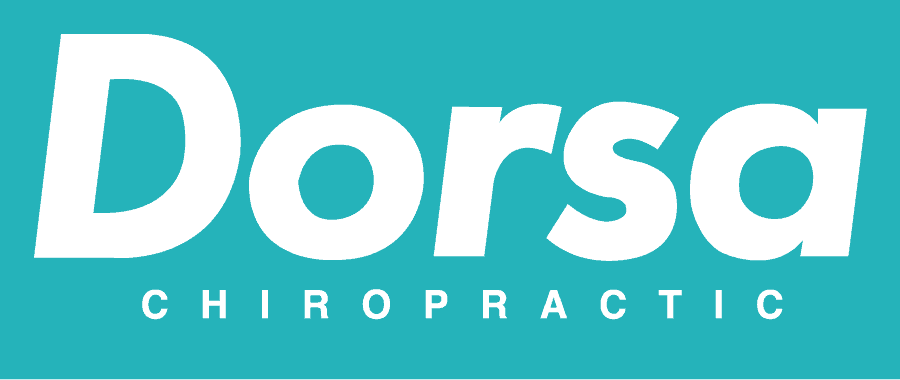Car accidents can happen in an instant—but their effects can linger for months, years, or even a lifetime. While some injuries are immediately obvious, others are more subtle and may not show symptoms until long after the crash. Unfortunately, many people walk away from an accident assuming they’re “fine” because there’s no visible damage or pain right away. The truth is, untreated auto injuries can lead to long-term consequences that impact your mobility, comfort, and overall health.
At Dorsa Chiropractic, we often see patients weeks or months after their accidents, once the pain finally becomes too persistent to ignore. In this post, we’re diving into why early evaluation and treatment after a car accident is so important—and what can happen if injuries go untreated.
Hidden Injuries Can Get Worse Over Time
Immediately after a car accident, your body releases adrenaline and endorphins—natural chemicals that temporarily mask pain and make you feel like you’re okay. It’s a biological response meant to protect you during high-stress situations. But as those chemicals wear off, underlying issues start to surface.
Common injuries like whiplash, soft tissue damage, spinal misalignments, and disc herniations may not be obvious at first. If left untreated, these conditions can worsen, causing chronic pain, reduced range of motion, and even nerve damage over time.
Example: A minor neck strain today could lead to chronic headaches, tingling in the arms, or cervical disc degeneration if not properly addressed.
Chronic Pain Becomes Your New Normal
Many patients who delay treatment simply adapt to the discomfort. That nagging back pain or stiff neck becomes part of daily life—but it doesn’t have to be. Chronic pain is often a sign that the body hasn’t healed properly, and ignoring it allows dysfunction to become permanent.
Over time, your body may compensate for the injury by shifting posture or movement patterns, which puts extra stress on other joints and muscles. This domino effect can lead to new injuries, arthritis, and long-term mobility issues.
Did you know? Studies show that chronic musculoskeletal pain is one of the leading causes of disability worldwide. Early intervention can significantly reduce your chances of developing long-term complications.
Scar Tissue and Adhesions Limit Movement
When soft tissue like muscles, ligaments, and tendons are injured, the body responds by creating scar tissue. While this is part of the natural healing process, too much scar tissue—or improperly healed tissue—can create adhesions that restrict movement and cause ongoing discomfort.
Without proper treatment, these tissues heal in disorganized ways, limiting flexibility and range of motion. Over time, this can contribute to a feeling of stiffness, weakness, or even nerve entrapment.
At Dorsa Chiropractic, we use techniques like IASTM (instrument-assisted soft tissue mobilization) and dry needling to break up scar tissue and restore healthy movement patterns.
Degeneration of Joints and Discs
Untreated spinal misalignments or disc injuries from a car accident can lead to accelerated degeneration. This includes conditions like degenerative disc disease, facet joint arthritis, or spinal stenosis.
The longer your spine stays out of alignment, the more wear and tear occurs on your joints and discs. This can result in nerve compression, numbness, radiating pain, and loss of mobility—all of which may require more intensive interventions down the road.
Pro Tip: Spinal decompression and Class IV laser therapy are two excellent tools we use to help slow or even reverse some of this degeneration if caught early.
Mental and Emotional Strain
Physical injuries aren’t the only thing that linger after a car crash. Chronic pain and reduced quality of life can also take a toll on your mental health. Anxiety, depression, sleep disturbances, and increased stress are all common in patients who deal with persistent, untreated pain.
When you don’t feel well physically, it affects your ability to work, exercise, spend time with family, and enjoy life. The psychological impact of pain is just as important to treat as the physical, and early care can help you avoid this emotional burden altogether.
Insurance Deadlines and Legal Challenges
In many cases, waiting too long to seek treatment after an accident can also complicate insurance claims or legal proceedings. Most insurance companies have strict deadlines for seeking medical care following an accident. If you delay, it may appear as though your injuries weren’t serious—or that they aren’t related to the accident at all.
Documenting your injury and treatment as soon as possible not only supports your health but also helps protect your right to compensation for care, lost wages, and pain and suffering.
What to Do After an Accident
Even if you feel okay, it’s crucial to schedule an evaluation with a chiropractor experienced in auto injuries. At Dorsa Chiropractic, we specialize in identifying and treating subtle misalignments and soft tissue injuries before they become chronic problems.
Here’s what you can expect during your visit:
-
A detailed health history and accident review
-
Postural and neurological assessments
-
Gentle spinal adjustments
-
Soft tissue therapies like dry needling or laser therapy
-
A personalized care plan to promote healing and mobility
We also offer a relaxing roller table session to promote spinal motion and ease muscle tension.
Final Thoughts: Don’t Wait for Pain to Set In
The aftermath of an auto accident can be overwhelming—insurance paperwork, car repairs, and daily responsibilities often take center stage. But your health needs to be a top priority. Ignoring early symptoms or skipping care entirely may lead to lasting damage that’s harder (and more expensive) to fix later on.
The team at Dorsa Chiropractic is here to support your recovery, whether it’s been 24 hours or several weeks since your accident. Our goal is to help you feel better, move better, and avoid the long-term consequences of untreated injuries.
Been in a recent car accident? Schedule your evaluation today and take the first step toward healing—your future self will thank you!

Welcome to Dorsa Chiropractic. We started this practice to help people like you feel great!
When you visit us here at Dorsa Chiropractic, we’ll go over your injury, pain points, or general wellness goals. Our doctors will conduct an assessment to verify the root of your physical symptoms to come up with a plan for bringing your body back to health.

